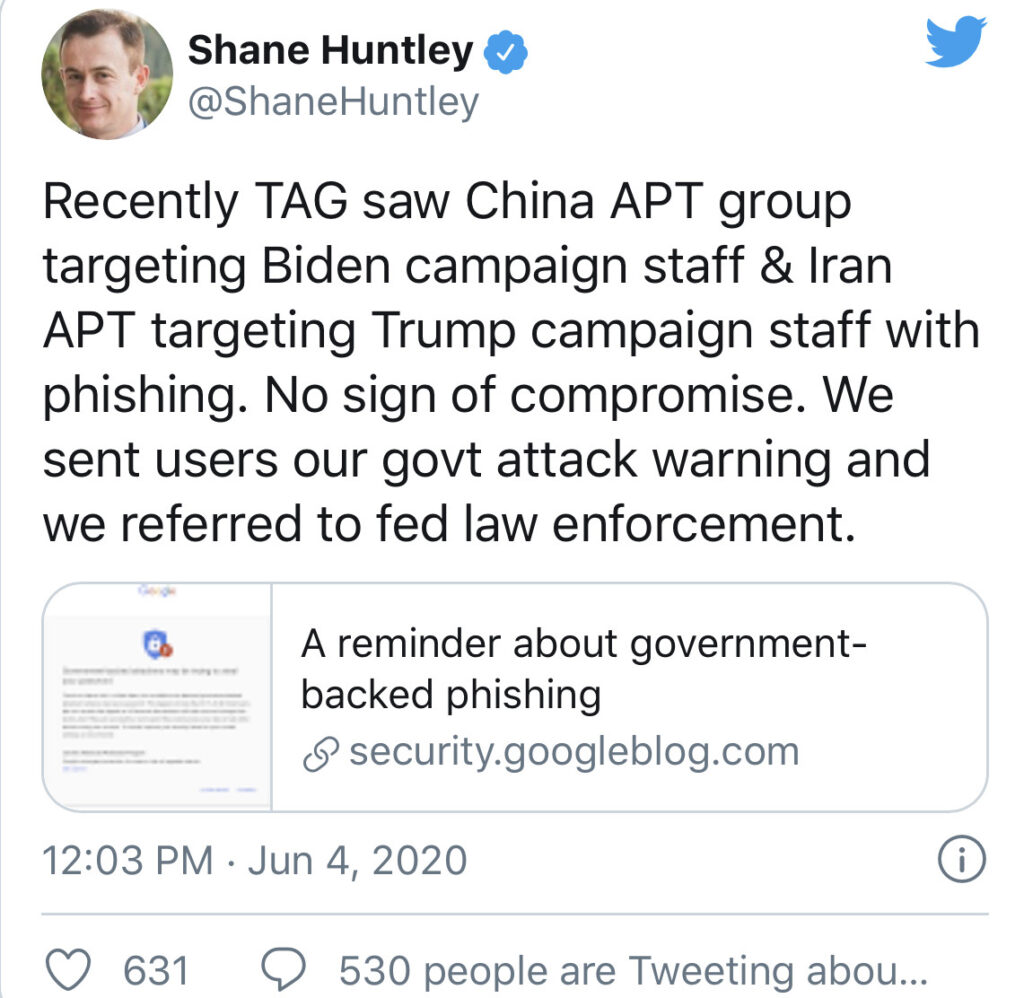
Washington D.C. – With Election Day a few weeks away, Congressional Democrats have found themselves at odds with the White House, yet again, calling for the director of national intelligence’s cancellation of nearly all in-person election security briefings to be investigated.
Now, Congress is still scheduled to be briefed on election security by the Office of the Director of National Intelligence but only via written reports verse verbal briefings.
Former Texas Republican congressman (confirmed as Director of National Intelligence in May), John Ratcliffe, wrote a letter to congressional leaders that explained how this change will “help ensure, to the maximum extent possible, that the information ODNI provides Congress is not misunderstood nor politicized”.
President Trump backed this new move by stating Ratcliffe was ending the briefings in efforts to prevent leaks to the press.
This change comes on the heels of top counterintelligence officials warning the public about ongoing interference and socially engineered influence by Russia, China and Iran simultaneously.
William Evanina, who leads the National Counterintelligence and Security Center, stated, “Ahead of the 2020 U.S. elections, foreign states will continue to use covert and overt influence measures in their attempts to sway U.S. voters’ preferences and perspectives, shift U.S. policies, increase discord in the United States, and undermine the American people’s confidence in our democratic process,”
further clarifying that these countries could try to compromise election equipment either to adversely affect or give the illusion of tampered results. U.S. government officials have assessed that China prefers President Trump losing the election because Beijing considers him “unpredictable,” while Russia has been observed using a number of tactics that include spreading propaganda on social media and Russian television and working diligently to undermine the Joe Biden/Kamala Harris Democratic ticket, in favor of Trump’s re-election.
About four years after Russian operatives hacked into the email accounts of prominent Democrats ahead of the 2016 election, Google has confirmed foreign adversaries “are still at it.”

According to Shane Huntley, the head of Google’s Threat Analysis Group, even though most of the attempts currently haven’t been successful, security professionals note that Chinese-backed hackers were observed targeting former Vice President Joe Biden’s campaign staff, and Iranian-backed hackers were seen targeting President Trump’s campaign staff with malicious phishing attacks.
A “Phishing” attack is when an attacker sends an email to a target disguised as one coming from a trusted source (for example, someone from your friend’s list or a regularly scheduled newsletter). The message often includes a link designed to trick the target to click and download malicious software, or “point” (redirect) the victim to a website controlled by the attacker, that will capture personal information such as usernames and passwords. They can install key loggers that record your every keystroke, or gain access to your computer via an installed “trap door” — malicious malware that allows them to download personal files stored to your hard drive.
So, what does all of this mean?
Democrats like Illinois Rep. Raja Krishnamoorthi, a member of the House Intelligence Committee, says the in-person briefings allow Congress to ask necessary questions and assess the tone and urgency of any threats from the intelligence community.
“The fact that they would prevent further in-person briefings means that they want us not to be able to question career public servants about the intelligence that backs up this assessment of Russian interference, press for additional information about it and, quite frankly, ask how we can do more to combat it,” Krishnamoorthi told Weekend Edition.
Basically, the Russians are trying to influence our presidential election — again. In bringing an end to in-person election security briefings (conveniently before November) during live Congress sessions and to the main oversight committees means there’s no record of any members of the White House, Congress or the Senate receiving in-person intelligence briefs in relation to this nations voting system, should they receive a subpoena to testify before Congress.
The Director of National Intelligence (DNI) has his hands tied and is being restricted to his ability to inform both lawmakers and the public on the status of the safety of our IT infrastructure and voting systems. This means elected officials can hide behind ignorance on a particular situation or cyber-incidents related to the election come November by simply saying “I wasn’t briefed on the matter.” All while cyber warfare is being waged by foreign actors on American citizens.

